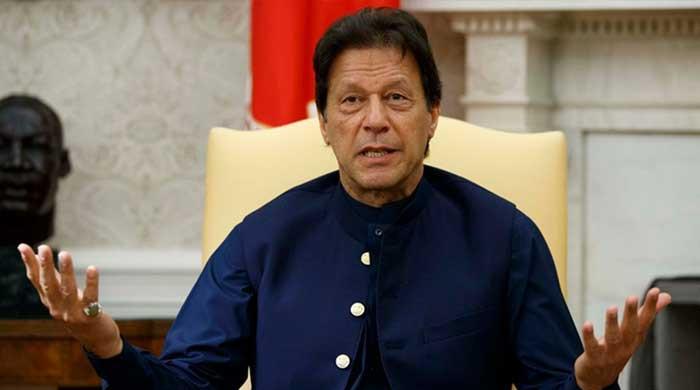Chinese leader Xi Jinping appears on television, quelling rumors of a Beijing coup
The ruling Chinese Communist Party propaganda machine is in full swing ahead of its 20th National Congress.

Ruling Chinese Communist Party (CCP) leader Xi Jinping has made an appearance on state television, scotching rumors on social media that he was under house arrest.
China Central Television (CCTV) showed footage of Xi viewing an exhibit at the Beijing Exhibition Hall titled "Forging Ahead into the New Era," a reference to his personal brand of political ideology.
Rumors had been swirling on Chinese-language Twitter that the 69-year-old Xi's absence from the public eye presaged a bid to topple him from power ahead of the CCP's 20th National Congress next month, where Xi will seek an unprecedented third term in office after amending the constitution in 2018 to remove term limits on the leadership.
In a country where all information is tightly controlled by government censors and the media are expected to sing the praises of its leaders, coup rumors aren't infrequent.
The recent rumors were partly sparked by online remarks made by Song Ping, a centenarian former member of the all-powerful Politburo standing committee, who appeared to criticize recent moves by Xi's administration to ensure greater state control of an economy no longer driven by exports, but by domestic demand.
However, Xi is highly likely to have been in compulsory quarantine following his Sept. 16 return from the Shanghai Cooperation Organization summit in Uzbekistan.
Veteran journalist Cheng Yizhong, founder of the Southern Metropolis Daily, said much of the rumors resulted from wishful thinking among Chinese intellectuals.
"It's such nonsense. How could that even happen?" Cheng said. "This is all people's personal emotions talking, and has nothing to do with reality."
A senior political source in Beijing said it was true that Xi has faced challenges to his recent policy directions from within the party, but the key challenge for Xi will be the issue of the third term next month.

The Cyberspace Administration of China and the CCP's Central Propaganda Department declined to comment when contacted by RFA on Monday.
Xi's zero-COVID policy, which has entailed frequent and grueling lockdowns leading to a nationwide economic downturn and hardship for affected residents, is a major focus of dissent within the ruling party, analysts have told RFA.
The president's insistence on a tougher kind of "wolf warrior" diplomacy, which has alienated trading partners, and his moves towards greater state control of the economy have also been unpopular.
But a growing personality cult is also emerging around Xi, generating an atmosphere of fear, in which powerful individuals and institutions are expected to repeatedly demonstrate their loyalty to the CCP's "core leader."
Nonetheless, political analysts generally expect that Xi will win approval at the party congress, which opens in Beijing on Oct. 16, for his third five-year term at the helm of party and state, despite some misgivings in party ranks over giving a single leader too much power.
Police and local officials have stepped up security measures across China in recent weeks, displacing large numbers of migrant workers and petitioners, sending them back to their hometowns ahead of the congress.
Government censors have been purging social media accounts and cultural productions deemed not to hit the right note of joyful praise and positive energy ahead of the five-yearly event.
No 'wolf-warrior' films
A Top Gun-style action movie about Chinese pilots titled "Born to Fly" was pulled from movie theaters, where it had been scheduled for release during the Oct. 1 National Day holiday week.
A movie industry insider who gave only the surname Gu said nobody is sure why the film had been pulled, but one theory suggests it could have shown viewers a little too much detail regarding China's newest fighter jet, the J-20.
She said the suspension had been ordered by the State Administration of Radio, Film and Television (SARFT).
"The SARFT issued an instruction that no 'wolf-warrior' type films could be released," Gu said.
"People are saying they are worried about [such films] stoking up a warlike mentality."
The film's distributors declined to comment on the reason for the move, saying only that the movie's release had been "rescheduled."
"This incident has had a huge impact on the film industry," she said. "Firstly, this film was a big investment, one of the biggest, with hugely expensive special effects ... and had been expected to do very well at the box office."
"Secondly, this comes after the suspension of [gritty rural love story] Return to Dust ... which means that there's not a lot of topics that are safe for the Chinese film industry to make," Gu said.
Current affairs commentator Pan Lu said Xi likely wants to ensure his third term is in the bag before addressing the question of whether to invade the democratic island of Taiwan, which the CCP claims as its territory despite never having held it, and despite massive public opposition to Chinese rule among the island's 23 million people.
"They don't really need for there to be too much nationalistic sentiment affecting [Xi's next term] in power," Pan told RFA. "[Such movies] always have imaginary enemies like the United States, Taiwan or Japan."
"It was originally made as a form of political flattery, but now it comes across as a bit superfluous, and the CCP fears it could have unintended consequences," Pan said.
Translated and edited by Luisetta Mudie.













